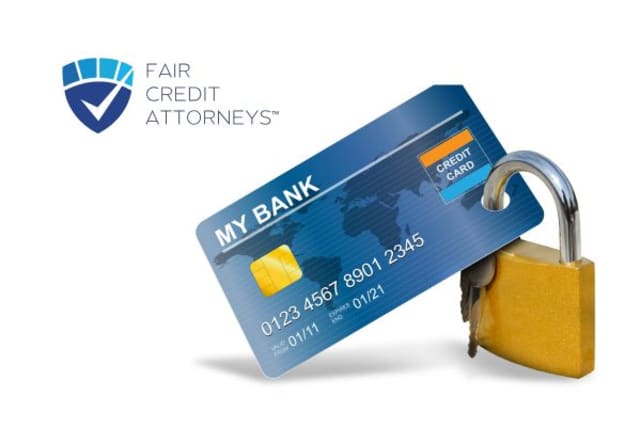Credit reporting agencies, also called consumer reporting agencies, play an essential role in the financial ecosystem. These organizations gather, store, and share detailed financial data about individuals, which lenders, landlords, insurers, and even employers use to make decisions.
From determining whether you qualify for a mortgage to influencing your car insurance rates, your credit report is at the heart of these decisions. Understanding how these agencies operate, what rights you have, and how to protect your credit health is the first step to taking control of your financial future. If you’ve ever felt lost in the world of credit, read on to learn how to take back control. For personalized legal help, don’t hesitate to reach out to an experienced attorney.
Top Three Credit Reporting Agencies
There are three main credit bureaus that allow you to check your credit information and ensure that no errors have been made. These include:
- Equifax
- Experian
- TransUnion

Equifax
Equifax is one of the largest credit reporting agencies in the world. They collect and maintain credit information on millions of consumers, compiling detailed credit histories for use by lenders, landlords, and even some employers. Their reports include payment histories, public records such as bankruptcies, and current debts. Equifax also offers monitoring services, fraud alerts, and credit score tracking to help consumers manage their financial health.
Experian
Experian is a global leader in consumer and business credit reporting. They offer consumers access to their credit files, provide free and paid credit monitoring, and offer identity theft protection tools. Experian’s reports contain payment patterns, account balances, personal identifying information, and public records. Lenders often rely on Experian to make quick, informed lending decisions.
TransUnion
TransUnion serves both consumers and businesses with credit data, risk analysis, and identity management services. Their credit reports include detailed account histories, payment trends, and public records. TransUnion is widely used for tenant screenings, lending decisions, and employment background checks, making it a key player in the credit industry.
Lesser-Known but Important Credit Reporting Agencies
Outside of the main credit bureaus, there are also some lesser-known but still important agencies that can check your credit history. These include agencies for employment screening, tenant screening, and insurance screening services that check your credit score.
Specialized Agencies for Employment Screening
Some agencies focus on employment history and verification, offering background checks for employers. They may verify previous jobs, education credentials, and professional licenses.
Tenant Screening Services
Tenant screening agencies help landlords assess rental applicants by providing rental payment histories, eviction records, and related credit information.
Insurance Screening Services
Insurance companies may use specialized reports to evaluate risk before issuing policies. These can include claims history, driving records, and other factors that could affect your premiums.
How Credit Reporting Agencies Collect Data
Credit reporting agencies gather data from multiple sources, including:
- Banks and credit card companies
- Mortgage lenders
- Government agencies
- Collection agencies
- Public court records
How Consumer Profiles Are Created
Once collected, this data is compiled into a consumer credit report, which includes your payment history, credit accounts, outstanding debts, and public records. Scoring models like FICO and VantageScore then process this information into a three-digit credit score that lenders use to evaluate your creditworthiness.
The Importance of Checking Your Credit Report
Regular credit checks help you:
- Spot errors before they cause damage
- Detect early signs of identity theft
- Monitor your progress when working to improve your credit
- Prepare for major purchases or loan applications
How Often You Should Check Your Credit Report
Under the Fair and Accurate Credit Transactions Act (FACTA), you are entitled to one free credit report every 12 months from each of the three nationwide agencies through AnnualCreditReport.com. Experts recommend checking all three at least once per year, and more often if you have reason to suspect fraudulent activity.

Rights and Protections for Consumers
The Fair Credit Reporting Act (FCRA) guarantees:
- Access to your credit report upon request
- The right to dispute inaccurate or outdated information
- The removal of unverifiable information after a set time frame
The FCRA requires credit reporting agencies to investigate disputes within 30–45 days and make necessary corrections.
How to Dispute Inaccuracies in Credit Reports
- Get Your Reports: Request copies from all three major agencies.
- Identify Errors: Look for accounts or payments you don’t recognize.
- Gather Documentation: Collect evidence to support your claim.
- Submit a Dispute: Send your dispute to the credit bureau via certified mail.
- Follow Up: Monitor your report to confirm changes have been made.
Safeguarding Your Credit Health
Your credit profile is one of your most valuable financial assets. Protecting it requires consistent monitoring, proactive measures, and swift action when problems arise. By taking these steps, you can maintain accuracy in your reports, prevent fraud, and keep your credit score healthy.
Steps to Ensure the Accuracy of Your Credit Information
- Monitor your credit regularly
- Use strong, unique passwords for financial accounts
- Set up fraud alerts if you suspect suspicious activity
- Limit sharing of personal information
What to Do in Case of Identity Theft
If you suspect identity theft:
- Place a credit freeze to block new accounts in your name
- File a report with the Federal Trade Commission (FTC)
- Contact your local police department to create an official record
- Notify the credit reporting agencies immediately to start the recovery process

What Are the 7 Credit Bureaus?
While most people are familiar with the “Big Three,” there are several other important credit reporting agencies that maintain financial and personal data on consumers. Knowing all seven can help you monitor your credit more effectively.
| Credit Bureau | Primary Purpose | Key Details |
|---|---|---|
| Equifax | Nationwide credit reporting | Lenders, landlords, and employers use these reports for financial decisions. |
| Experian | Nationwide credit reporting | Includes credit scores, account histories, and identity theft tools. |
| TransUnion | Nationwide credit reporting | Offers credit monitoring, fraud alerts, and public record data. |
| Innovis | Alternative and supplemental credit data | Tracks non-traditional credit like rent and utilities. |
| ChexSystems | Banking history tracking | Used by banks to assess checking and savings account applications. |
| C.L.U.E. (Comprehensive Loss Underwriting Exchange) | Insurance claim history | Used by insurers to assess risk before issuing policies. |
| NCTUE (National Consumer Telecom & Utilities Exchange) | Telecom and utility payment history | Tracks accounts for phone, cable, and utility services. |
Conclusion
Credit reporting agencies influence nearly every major financial decision in your life. By understanding who they are, how they work, and what your rights are, you can take control of your credit profile and make informed decisions.
Regular monitoring, timely disputes, and proactive security measures can help you maintain a strong financial foundation while minimizing the risk of errors or fraud. By staying informed and proactive, you can reduce the risk of identity theft, safeguard your financial future, and maintain peace of mind. If you have questions or need guidance, call us today at (866) 381-6444 to speak with a trusted attorney about your next steps.



